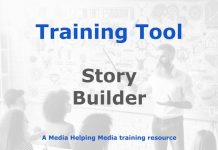
What are the best degrees for a career in journalism? Senior editors tell us what they look out for.
After spotting a question posted online about what degree would-be journalists should study for, I asked some senior editors in the Media Helping Media network what they felt were the best degrees for a career in journalism.
The following contributions are from a discussion thread on Media Helping Media. They contain tips that might help those planning a career in the media.
Life experience, humanities and social sciences
Dr Eric Loo from the University of Wollongong looked back to the days when a high school certificate sufficed for entry level journalism. That’s no longer the case, he wrote.
“I’d look for candidates with a modicum of life experience, those who can show a capacity to look at local and world issues from different cultural and political perspectives. A degree holder in humanities or social sciences who can write and communicate clearly is preferred to a journalism graduate.
“A high school certificate sufficed for entry level reporting during my time in the 1970s. We learned to report on the job, walked the streets, knocked on doors. The phone was our only tool to connect with the human voice. Those were the days of ‘shoe leather’ journalism. We were expected to be out on a job or on the phone. What a great vocation it was then. A craft that cadet reporters learned on the job, mentored by no-nonsense taciturn news editors who also rose up the ranks by experience.
“Apart from the ability to write in plain language, reporters were hired for their ‘nose for news’. They were the ‘go-getters’, the super-generalists, those who know a little about a lot, the ‘Jack/Jill of all trades and master of none’.
“But then things got more complicated with media competition and globalisation. Editors needed reporters who can look at issues beyond their immediate environment, to interpret from different angles – ‘Jack/Jill of all trades and master of some’ (specialist knowledge). Higher academic learning in any field is an essential requirement now for entry level reporting. This is based on the assumption that university studies equal higher analytical and critical thinking to complement life’s experience.
“Assumptions sometimes can be wrong though. Nonetheless, all things being equal, university graduates (in any field) are more likely to be better informed and ‘educated’ than one who is not. It’s a grey area. Perhaps the question is what type of life experience better prepares one for a career in journalism, rather than a university degree (which has long been an essential requirement).”
Attitude and aptitude are essential
Despite working as a journalist for 37 years, Harishchandra Bhat says he is still studying.
“Eric is perfectly correct in his assessment. It is not the degree that counts, but attitude and aptitude. One has to have the sense of proportion, nose for the news and public interest in mind. Non matriculates (non-graduates) have made it big in the profession. Journalists are born, not made.”
Specialist knowledge can be really useful
Nick Raistrick – a media development specialist says specialisms can come in valuable.
“I’m often asked this and tend to advise against a journalism degree: partly because journalism is competitive and people who want to be a journalist when they are 17 or 18 may not feel the same way when they see the starting salaries (or years of unpaid work ahead of them) when they are 22.
“I think it’s still a vocational career and it depends on what kind of journalism you want to do, but specialist knowledge on a topic can be really useful. I wrote loads of educational features after having taught for years, for example.
“Many journalists are English/humanities graduates, so there can often be a demand for people who can do a good science story, for example.”
History and languages are important
Nick Walshe a TV news and media consultant says those wanting to follow a career in journalism should learn a specialism first and consider studying journalism later.
“To be an international journalist, do a languages degree – Mandarin, Arabic, Spanish, Russian, Swahili, French all cover a big chunk of the world. Ideally do a joint degree with two languages.
“To be a journalist in the Middle East, and probably anywhere else, study history – if you don’t know what’s gone before, you haven’t got a chance of explaining what’s happening now.
“If you’ve got the money, finish off with a one-year masters focused on practical journalism. You can learn journalism once you’ve got a basic grounding in something else.”
Curiosity, critical thinking and a hunger for news
Magda Abu-Fadil, director at Media Unlimited, says basic journalistic instincts are important.
“I’ve worked in the field, taught the subject, co-authored a book on journalism curricula, and trained professionals. There’s no one-size-fits-all.
“A good grounding in the liberal arts plus courses on the subject at hand are ideal (provided the academic program is up to snuff and keeps up with the fast-changing technology and landscape), but that’s not the only answer.
“Many a stellar journalist didn’t get a degree in communication, journalism or media studies. I did because I wanted to. But as Nick Walshe said, being multilingual is imperative if one is to cover international affairs.
“Curiosity, critical thinking, a hunger for news, a burning desire to tell a good story, regardless of the medium or platform, and a dedication to accuracy, fairness, balance and media ethics would be a good start. A lot also has to do with experience. So acquiring experience while learning is added value.”








